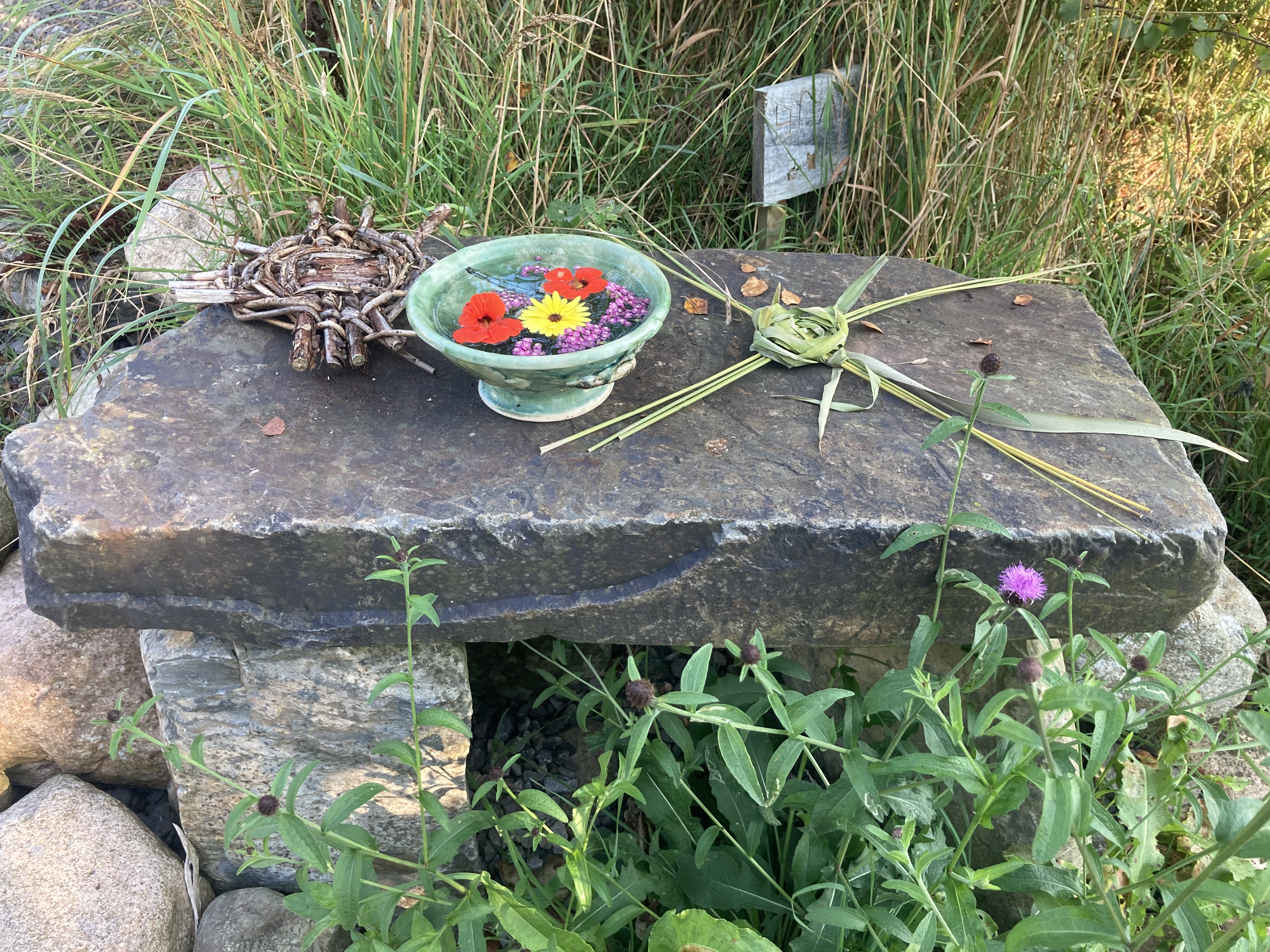
By Kath Baker
The new Projects and LAND Online programme begins in March. We have decided to mix the format up this year with a range of project presentations, panel discussions on your hot topics, interactive sessions. There is hopefully something here for everyone! Each session includes an opportunity for you to introduce your project, meet other project leaders, ask questions and an opportunity to reflect on the learning from the session and apply it to your own project. We have a lot of shared wisdom between us and would really welcome your contribution. These sessions are open to any Permaculture Association member who has signed up for our free project support offer. You will be sent joining links in your monthly projects and LAND newsletter. Alternatively you can sign up for these events in the Projects and LAND space in the Permaculture Community Hub.
All of the sessions run from 6.30-8pm, apart from our two masterclasses on March 8th and April 12th which will both run from 6-7pm.
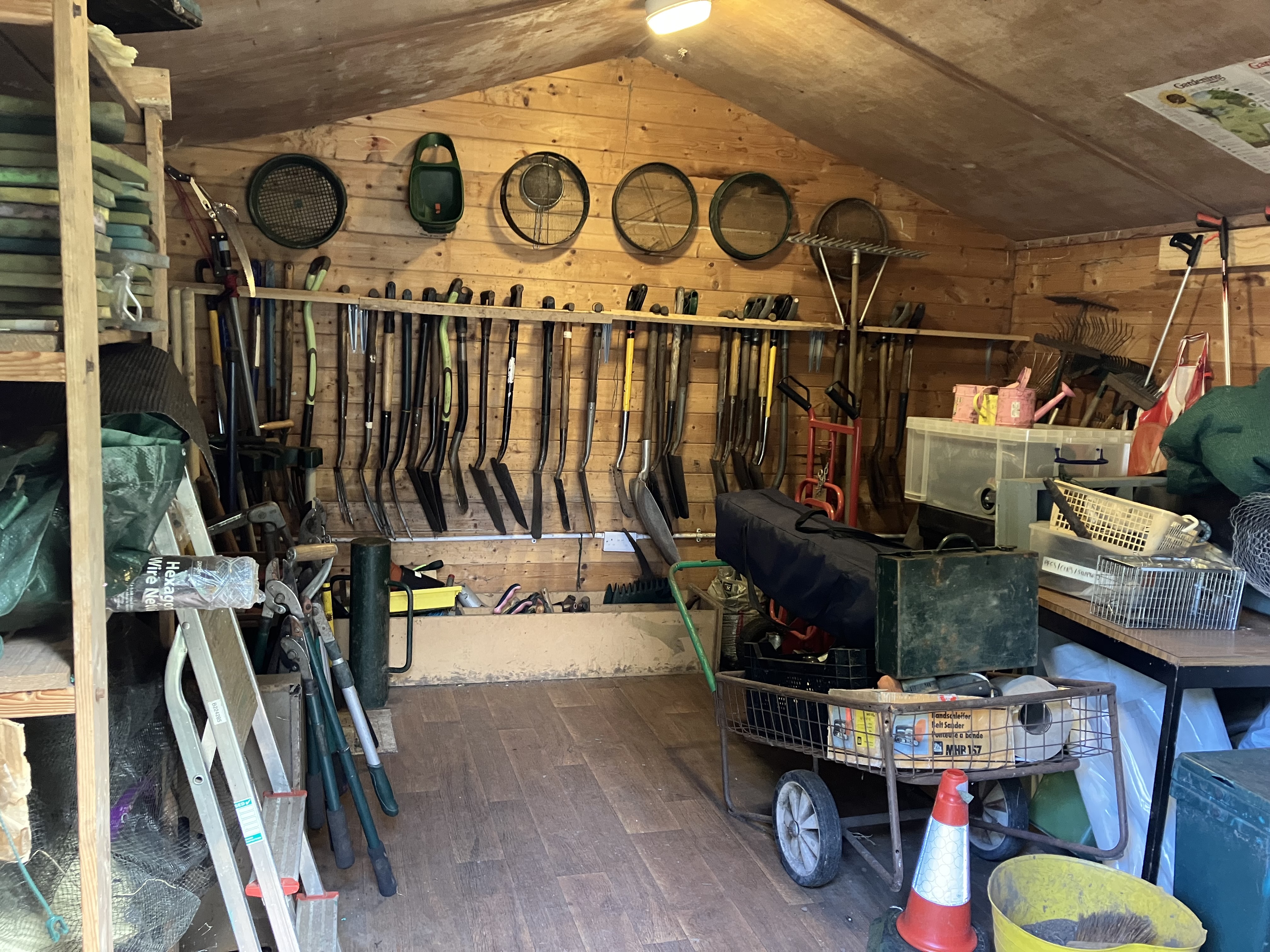 March 8th 6-7pm - Project Masterclass
March 8th 6-7pm - Project Masterclass
Risk Assessing your Project
Any task will be performed more efficiently and effectively if some thought is given to where it is to be performed, how it will be done and that the expected outcome will be. Risk assessments are an essential part of the planning process, most work carries a risk of potential harm and injury. It’s important to consider what could be done to control the risks to any persons who could be affected by the work being undertaken to “reasonable” and “acceptable” levels.
As well as being a legal requirement, Risk assessments are often the first piece of evidence sought by regulators in the event of an incident so it is important that they are recorded and reviewed as necessary.
You will learn:
- The importance of risk assessments.
- Who should carry out risk assessments.
- When should risk assessments be completed.
- What does good look like?
- What should be included in a risk assessment.
Victoria Ford is a Liability Risk Consultant with Zurich Insurance providing advice and training to a wide range of customers on their Health and Safety Risks. She has over 20 years experience in Health and Safety working in various roles within Insurance and the public sector. This masterclass has been kindly sponsored by Zurich Insurance UK.
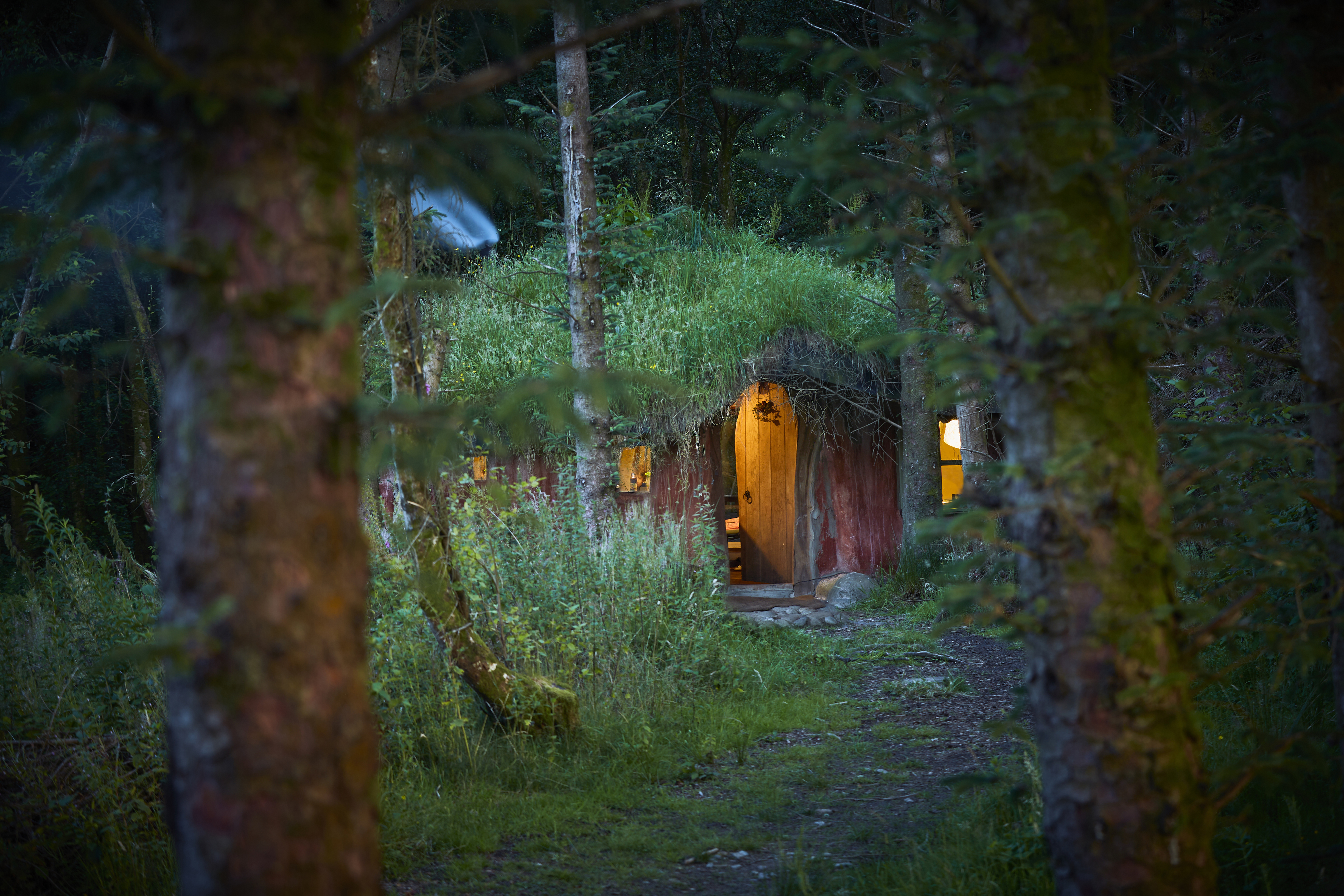 March 29th- Developing Eco-Tourism at your Project
March 29th- Developing Eco-Tourism at your Project
There is an increasing demand for UK based, green holidays and experiences, which in turn can provide a lucrative additional income for land based projects. In this panel discussion we will be discussing how to design an eco- tourism business, look at the practical considerations and hear stories from four projects who have successfully integrated this into their business model.
Join our expert panel Lorraine Ishak from the Hidden Mill, Clive Brandon from Black Isle Permaculture and Arts, Kim Fraser from Hideaway Under the Stars, all based in Scotland and Matt Swarbrick from Henbant in North Wales as they share their experiences of how to build a thriving permaculture eco tourism business.
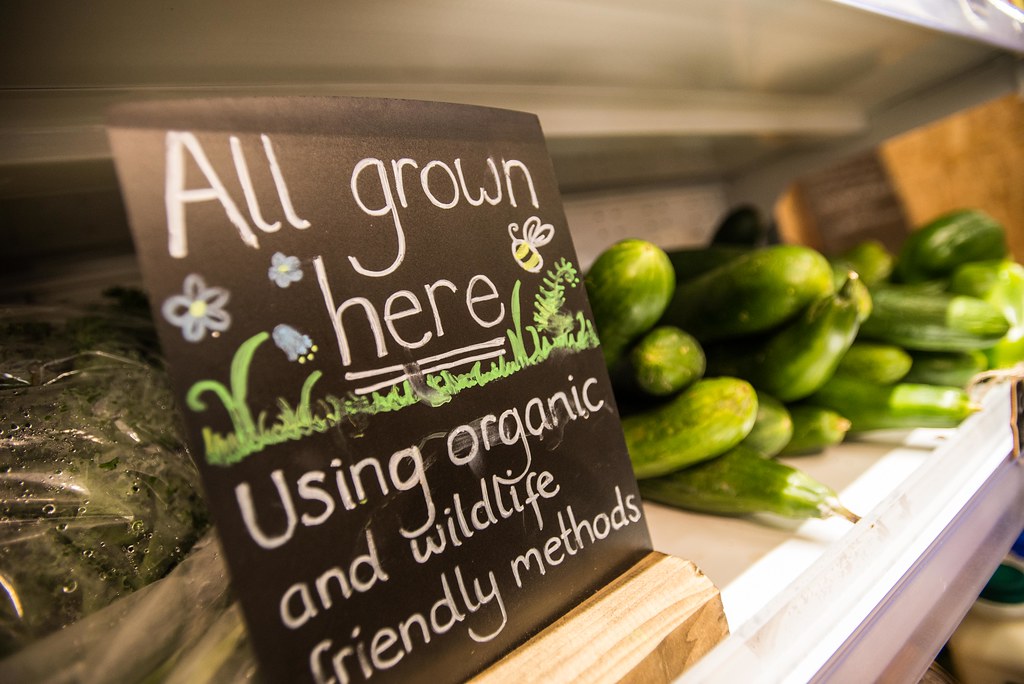 April 12th 6-7pm- Project Masterclass
April 12th 6-7pm- Project Masterclass
Marketing that Matters
Do you want to create content that resonates with your audience and inspires change? When you're busy doing what you love, it can be hard to know how to sell yourself or your products. Join this bitesized introduction to marketing your project.
You will learn:
- The basic principles of good content
- Developing a marketing strategy that works for you
- Telling your story and why it matters
- Finding your audience online
Founder and director of Green Measures Media, Alex Green is a digital content creator, consultant and social media trainer for charities, social enterprise and NGO's. Wityh a background in journalism, she draws on the principles of good storytelling to support projects to create content that counts. This masterclass has been kindly sponsored by Zurich Insurance UK.
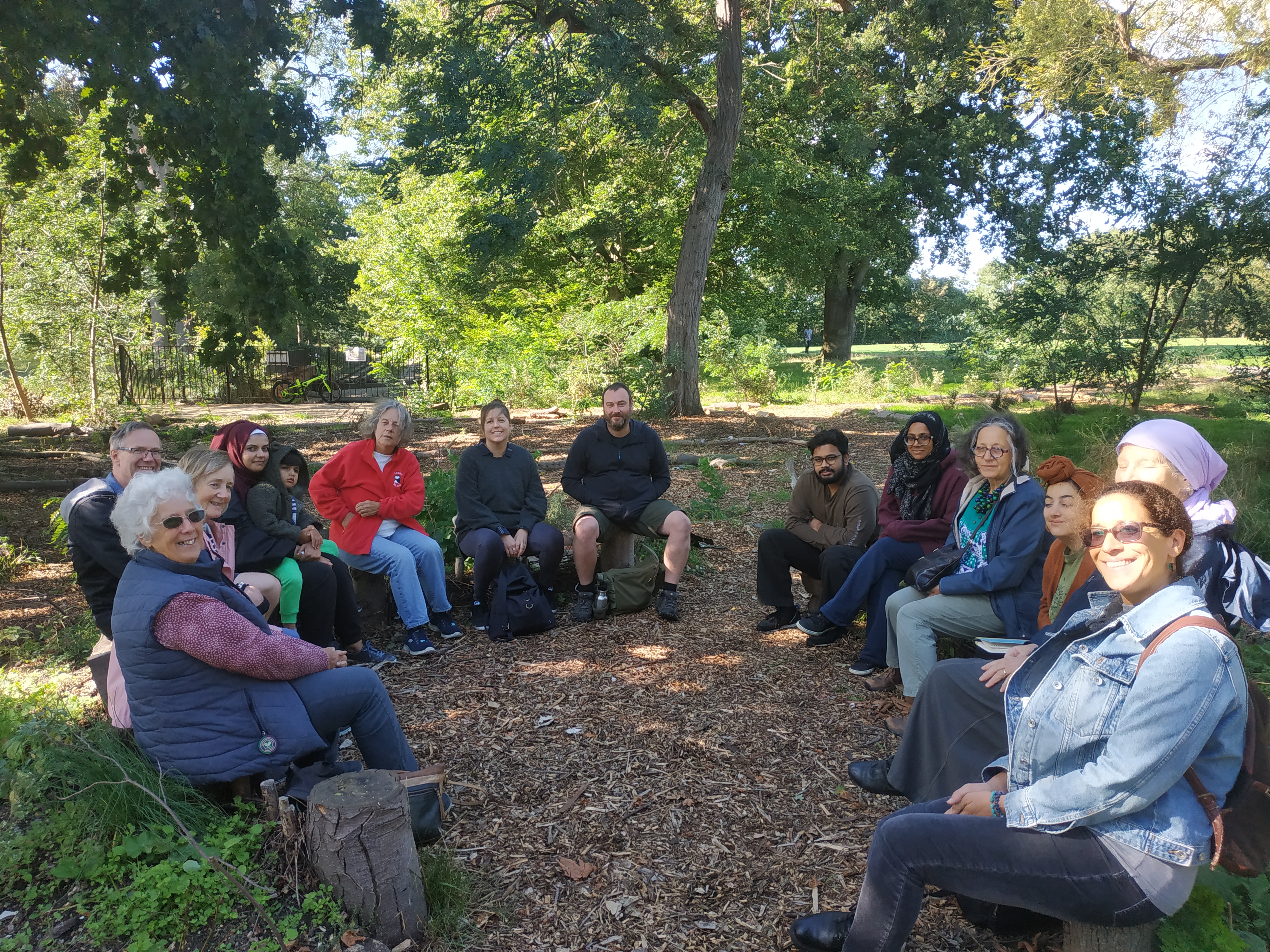 April 26th- Engaging your Community in your Project
April 26th- Engaging your Community in your Project
However brilliant our project may be, many of us still find it challenging to get the community engagement that we would like. In this panel discussion we will be exploring how to overcome barriers to engagement and encourage participation in order to create a diverse project with committed volunteers and a supportive community that is aware of your work.
Join our expert panel Karen Dobson from Scotswood Community Garden in Newcastle, global permaculture educator Rakesh Rootsman Rak from Roots N Permaculture and Pete Tatham from Hyde Park Source in Leeds as they share the unique challenges that they have faced in their communities and how they have managed to overcome them.
 May 31st- Talking to your Community about Climate
May 31st- Talking to your Community about Climate
What could a truly climate resilient community look like and how do we initiate those conversations? How do we identify what the particular climate challenges of our bioregion are and begin to develop collective actions? In this interactive session you will learn about the new Community Climate Coaching programme and hear stories of how effective this approach has been in working with rural communities in Ireland.
Davie Philip is a community catalyst and facilitator at Cultivate, the Sustainable Ireland Cooperative, based at Cloughjordan Ecovillage. Steve Charter is a permaculture educator, fundraiser for the Permaculture Association and a key part of iPEN and iACT. Join them as they share their vision for Community Climate Coaches. Learn and explore how this role, the CCC training, tools and resources can support projects to develop and implement grassroots climate resilience plans with their community and wider bioregion.
 June 28th- Building a Regional Permaculture Network
June 28th- Building a Regional Permaculture Network
A regional permaculture network serves many functions. It can facilitate a community of practice for projects, be of support in promoting events and courses, be a source of volunteers and like minded friends and give us the sense of being part of a tribe. In this panel discussion we will be exploring how to develop a regional network, what work is required to set it up and to maintain it and the most effective ways to get people to join in.
Join Susannah Hall from London Permaculture Network, Laura Corfield from Shift Bristol, Wilf Richards from the North East Permaculture Network, Peter Stopp from Paramaethu Cymru and Andy Goldring from the Permaculture Association and Leeds Permaculture Network as they share their experience of creating regional permaculture networks.
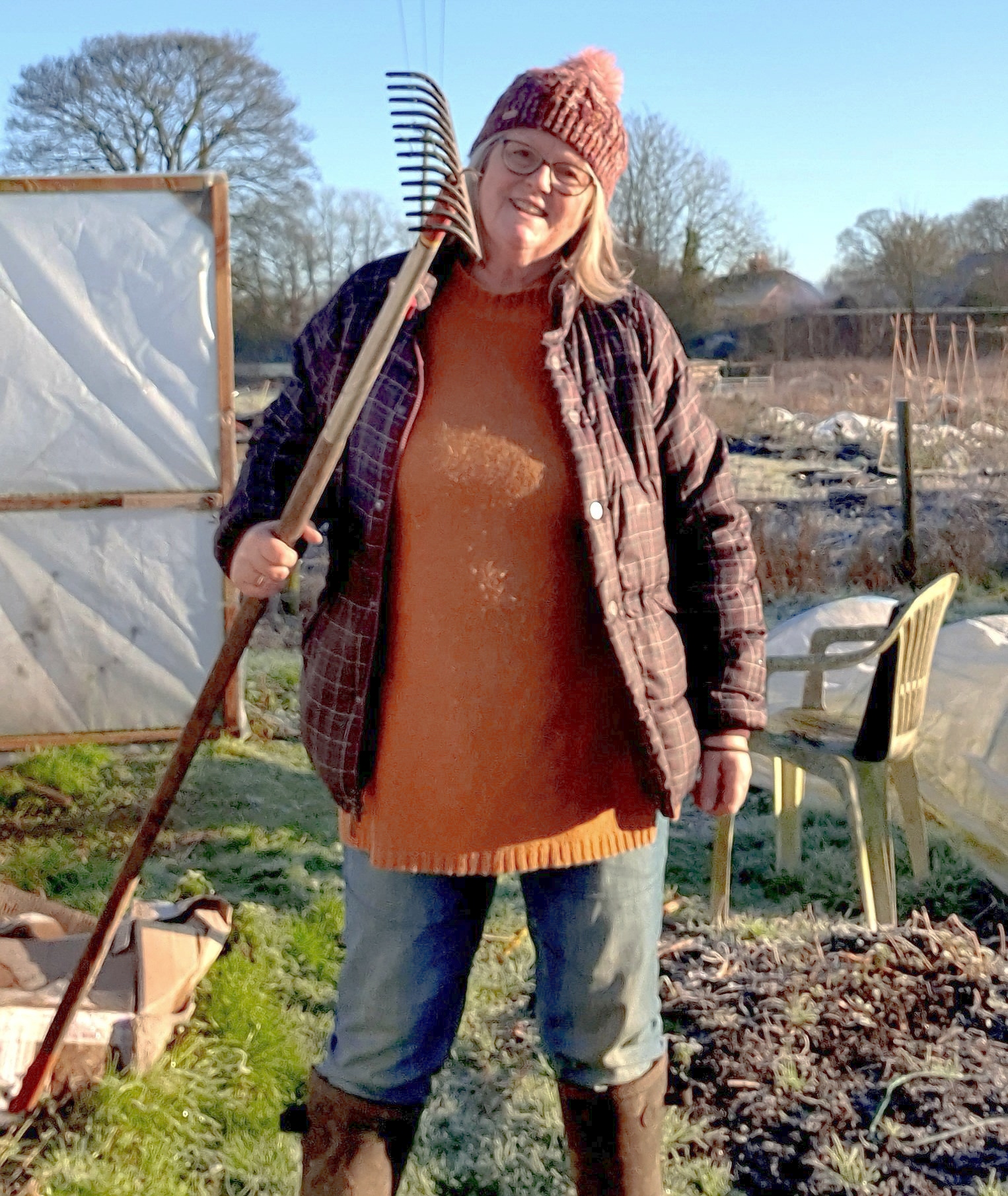 July 26th- Accessing Land without Owning it- The Story of Chestnuts Farm
July 26th- Accessing Land without Owning it- The Story of Chestnuts Farm
In this session, permaculturalist Jackie Bridgen will be looking at accessing land without 'owning' it, talking in some detail about formal tenancies like the one they have at Chestnuts Farm but also exploring informal agreements and other ways of gaining access.
Jackie passionately believes that seeing 'owning land' as the starting point of a journey is a barrier to most people, especially marginalised and underrepresented groups. Join Jackie in this exploration of how to hijack land for good use, without needing the deeds.
Jackie and her husband run Chestnuts Farm, a non residential smallholding on rented land in Wiltshire. It has twice been home to a CSA box scheme and is now transitioning back into being ‘just’ a permaculture project and domestic LAND Centre. Jackie has been involved with permaculture for 20 years and is currently working towards her diploma.
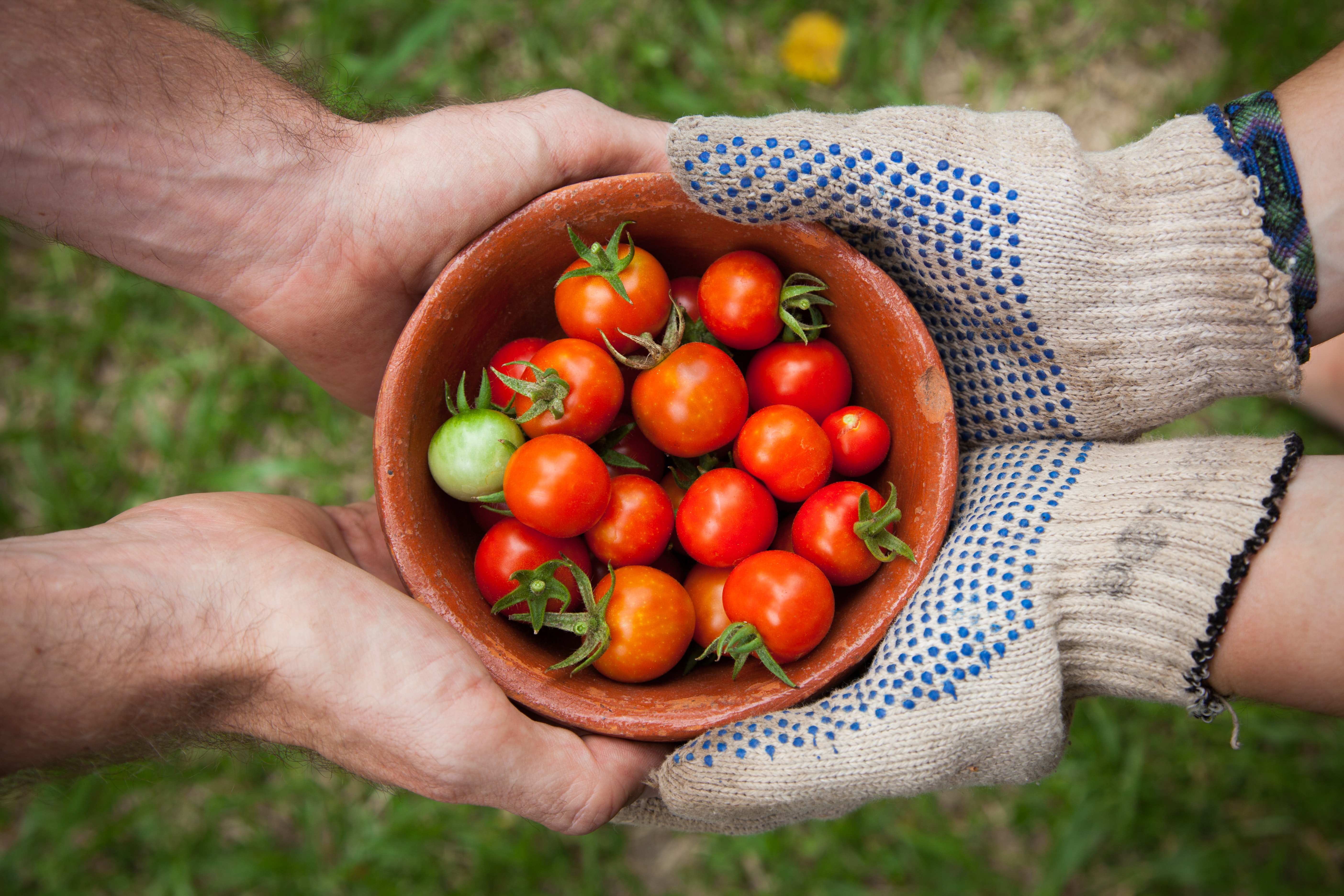
August 30th- Green Social Prescribing
Green Social Prescribing enables GPs, community health and care practitioners and local agencies to refer people for nature based interventions and activities, as a means of improving physical and mental wellbeing. This in turn can be a great source of committed volunteers and a route into accessing funding.
In this panel discussion join permaculture educators and project leaders Wenderlynn Bagnall and Paul Paine as they discuss the nuts and bolts of working with Green Social Prescribing, how they got involved and how it has benefitted their projects.
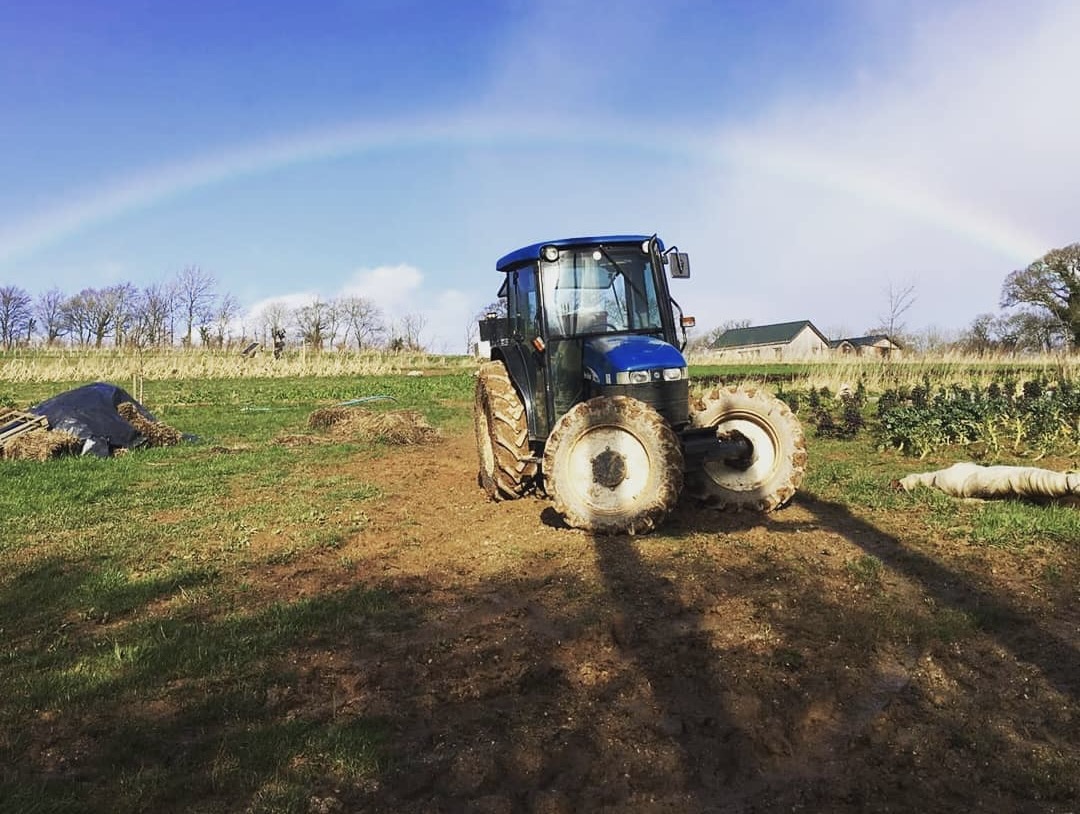 September 27th- How We Developed a Financially Resilient Business at the Apricot Centre
September 27th- How We Developed a Financially Resilient Business at the Apricot Centre
The Apricot Centre is a 13 acre regenerative, biodynamic farm based in Dartington, Devon. Since its inception in 2006, the farm has developed to incorporate agroforestry, field scale food growing, egg production, nationally recognised education and training programmes, a popular consultancy service, educational visits and wellbeing service.
Join director Rachel Phillips as she gives us an overview of the Apricot Centre and how they choreograph multiple income streams to create a financially resilient business. Find out about the successes, challenges and next steps for this dynamic and thriving project.
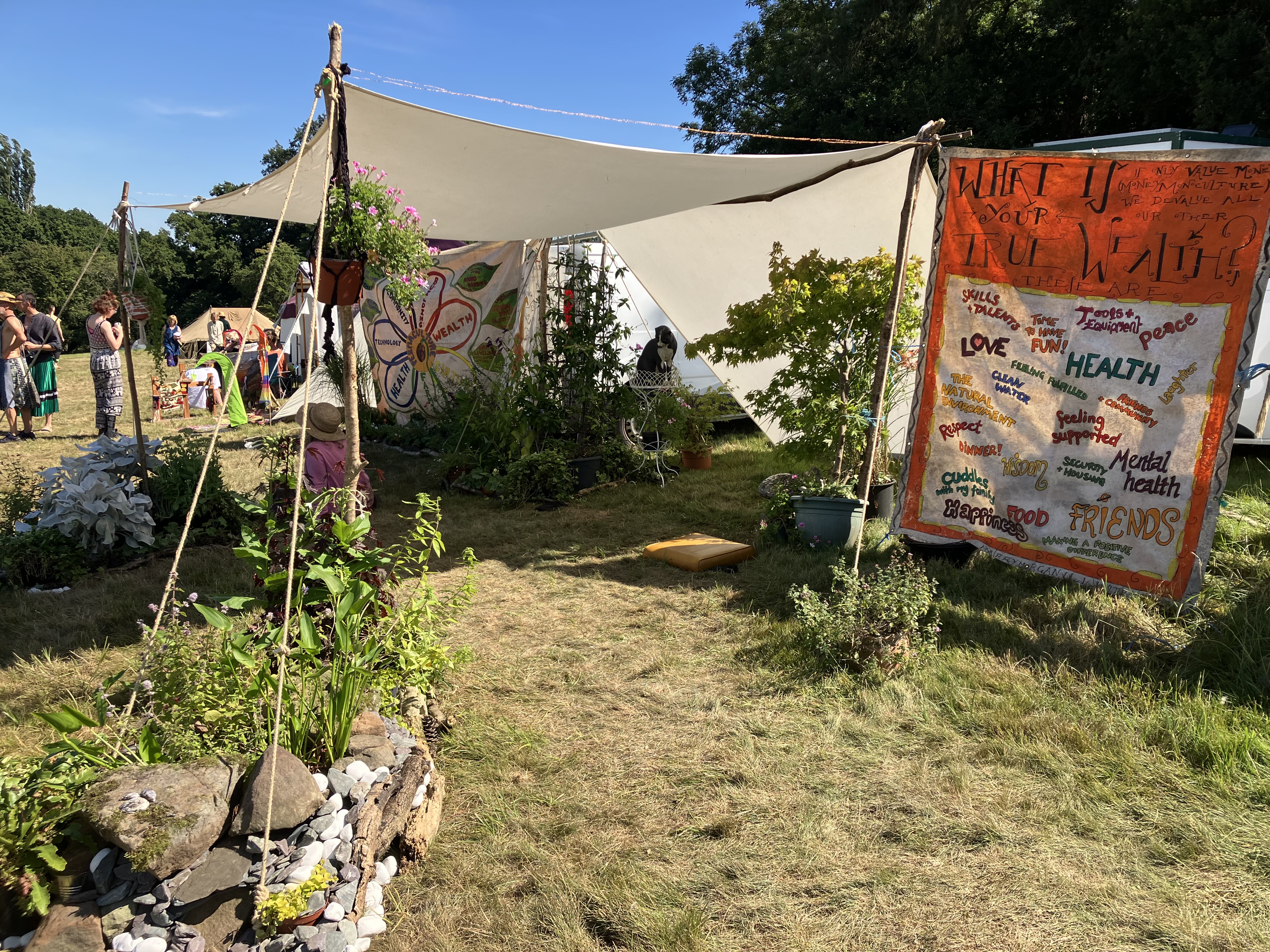
October 25th- Field Families- Designing Inclusive Permaculture Spaces
Field Families is a charitable organisation, devoted to spreading the awareness and understanding of permaculture throughout the UK. They create and facilitate areas at festivals & events, using permaculture design principles. They are community builders, orchardists, pagans, artists, teachers, gardeners, activists and mechanics. And they love active, inclusive and participatory design!
Join permaculture educator, PAB trustee and festival mama Tammi Dallaston as she shares how she consciously designs for inclusivity for both her festival crew and for festival punters. Learn how we can become more conscious about neurodiversity and hidden disabilities and how we can design empowering, inclusive spaces where everyone feels welcome and valued.
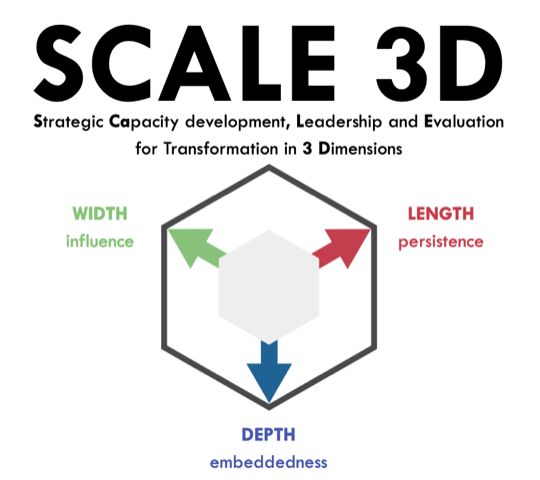 November 29th- Measuring the impact of your Project
November 29th- Measuring the impact of your Project
Measuring the impact of our project is imperative not only if we want to access grant funding, but also to assess whether our work is effective. The SCALE 3D model was developed to apply a ‘sense and respond’ approach to measuring impact that is more relevant for transformative networks, projects and social movements. In this session we will explore how to use the model to design our strategic goals and plans, and for doing monitoring and evaluation in a way that helps us learn and improve. You will learn how to directly apply a simple version of the model to your project or network.
Tim Strasser developed the SCALE 3D model in his action research PhD, focusing on how the practice of network leadership can support the development of transformative capacity in social innovation networks. He has been practically engaged as a network catalyst and strategy consultant in a variety of networks, including community-led and student-led sustainability initiatives which seek to transform the ways we live, learn and collaborate for a thriving and just future.
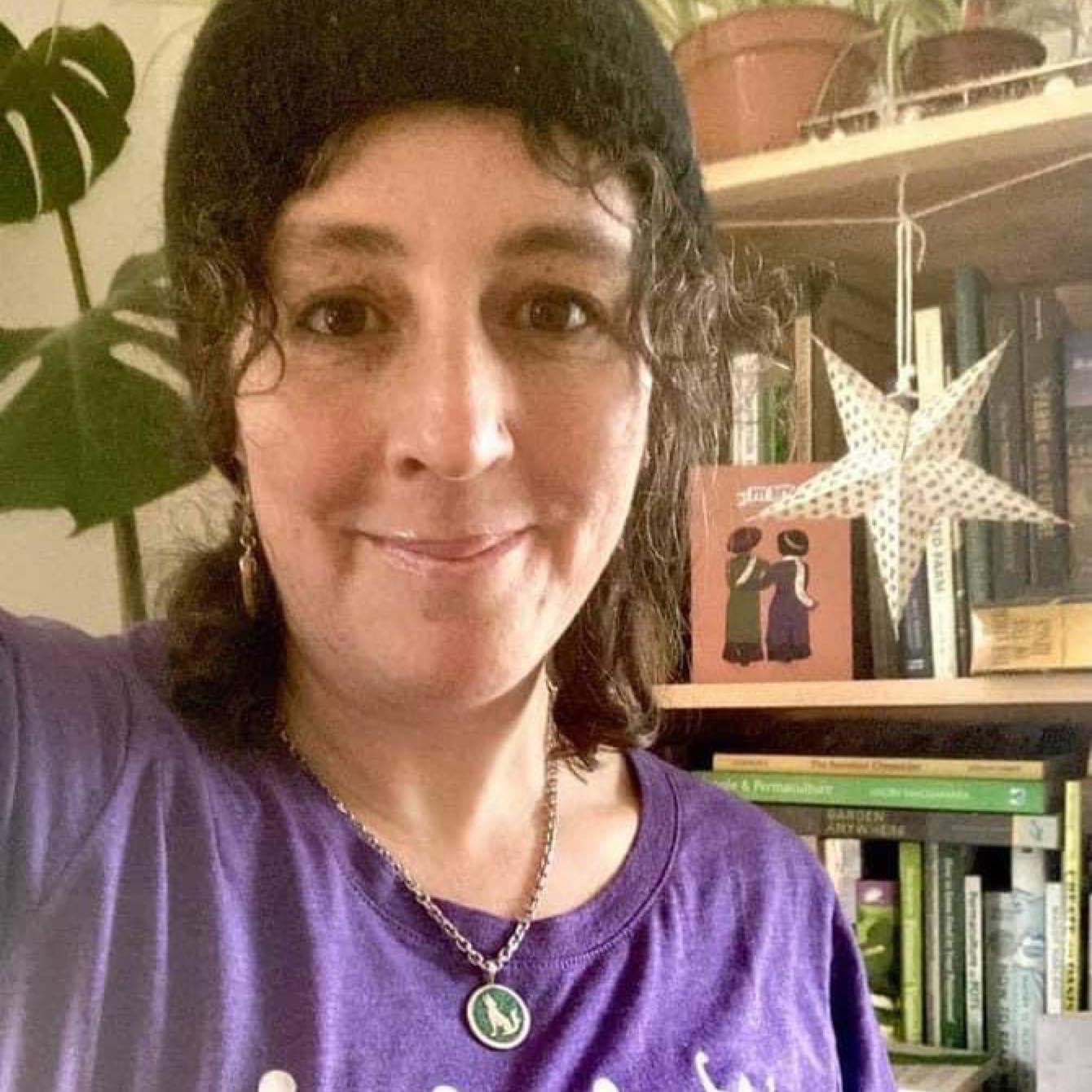
January 31st- Creating a Social Media Design
How can we effectively use social media to promote our projects, events and courses? What type of content is likely to inspire engagement amidst a sea of social media posts? In this session Kt Shepherd will be sharing her ‘Social Media 2023’ design for her Permaculture Educator work. She’ll be talking through her entire design process, sharing her beautiful illustrations and will evaluate her social media content over the past year in order to ‘tweak’ her design. This session will touch on effective means of marketing your project. Kt will share her top tips and techniques to help you improve your social media game.
Alongside and interwoven into Kt’s permaculture work she has been an upland farmer, a specialist palliative care nurse, a Carer of elders and a creative. She currently living in Saltaire, West Yorkshire, England where she is a part time Permaculture Educator, while living well with long term health challenges.